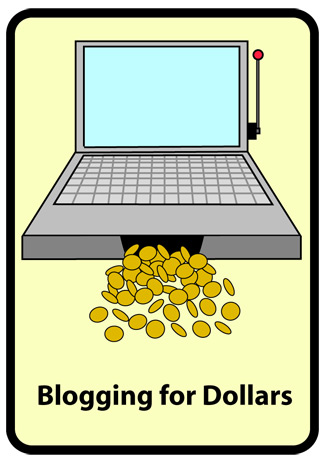 Mack Collier looks at several examples where businesses used blogs and social media to benefit their bottom line:
Mack Collier looks at several examples where businesses used blogs and social media to benefit their bottom line:
- South African winery, Stormhoek
After developing a social media strategy, the company’s sales doubled within 7 month.“… before Stormhoek started blogging and involving bloggers in its marketing efforts [in May 2005], that the winery sold around 40,000 cases of wine a year… in March of 2007… the company was at that point selling 40,000 cases of wine a WEEK.”
- GourmetStation.com
“Our business is really growing nicely on a very very small marketing budget, and I attribute a lot of that (growth) to the blog. In 06 our growth was 30% and in 07 year-to-date it’s 40%.” - Dell
At one time, 49% of blog posts about Dell on the web were negative. They embraced “blogging and bloggers. Today, the Austin company has one of the best reputations for effectively utilizing social media for communicating with its customers… negative blog posts about the [company] had fallen from 49%, down to 22%.”
There are other ways to leverage blogs to earn revenue – for some, blogging itself is the business. The Wall Street Journal looks at services that allow bloggers to monetize their efforts:
“Rhett Butler, founder of Mongabay.com, a site with articles on rainforest conservation and other environmental issues, makes $15,000 to $18,000 a month from AdSense, using various types of ads.”
“…Darren Rowse, the Melbourne, Australia-based writer of ProBlogger.net, a popular blog that teaches other bloggers how to make money, earned roughly $250,000 in 2007 off ads on three blogs he writes. Mr. Rowse says he makes the most off traditional display advertising, where advertisers pay a fee to appear, but he also has used affiliate ads and Google AdSense.”
Chris Anderson and others are compiling a list of online revenue models for the media industry. This is what they have so far:
- Affiliate revenues (think: Amazon Associates)
- Alternate output (pdf; print/print-on-demand; customized Shared Book style; etc.)
- API Fees (charging third parties to access your API)
- Co-branded spinoff
- Cost Per Install (popular with top Facebook apps who can help others get installs)
- CPC ads (“cost per click”; think Google ads)
- CPM ads (“cost per thousand views”; banner ads online and regular ads in print, TV and radio)
- CPT ads (“cost per transaction”; you pay only if the customer brought to you from a media sites becomes a paying customer. Here’s an example.)
- Custom services/feeds
- E-commerce (selling stuff directly on your website)
- Getting the users to create something of value for free and applying any of the above to monetize it. (Like
- Digg or our own Reddit)
- Lead generation (you pay for qualified names of potential customers)
- Licensing of brand (people pay to use a media brand as implied endorsement)
- Licensing of content (syndication)
- Listings (paying a time based amount to list something like a job or real estate on your website)
- Live events
- Paid Inclusion (a form of CPC advertising where an advertiser pays to be included in a search result)
- Rental of subscriber lists
- Sale of information (selling data about users–aggregate/statistical or individual–to third parties)
- Souvenirs/”Merchandise”
- Sponsorships (ads of some sort that are sold based on time, not on the number of impressions)
- Streaming Audio Advertising (like radio advertising delivered in the audio stream after a certain amount of audio content has been delivered)
- Streaming Video Advertising (like streaming audio but in video)
- Subscription revenues
- Upgraded service/content (ed: aka “freemium”)
The Associated Press looks at one small blogger who is indicative of the shift of ad dollars from mainstream media sites to smaller, more targeted blogs:
“[Blogger for BCSGuru.com, Samuel] Chi, a former sports journalist with training in statistics, posts his calculations every Saturday night during the season before official results are released on Sunday. Between Saturday night and Monday, about 4,000 sports fans log on daily to check out the “guru’s” forecast.”
“This season, Chi made about $8,000 total from the blog; ticket brokers contacted him directly after word about his site got out. Google’s AdSense brought in another couple hundred dollars for Chi, the owner of a bed-and-breakfast in Amelia Island.”
“For ticket broker RazorGator, advertising on blogs like BCSGuru.com means reaching a very specific audience.”
“We have found that more and more sports fans are turning to blogs and smaller fan sites to get their information so as an advertiser it makes sense to follow your audience,” spokeswoman Toni Lamb wrote in an e-mail.”
